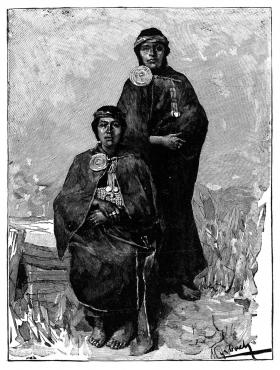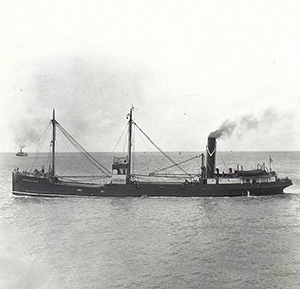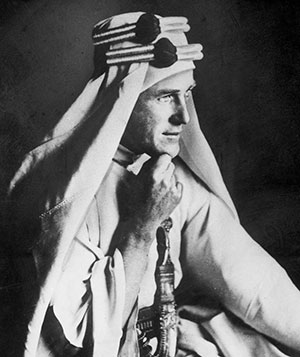Indigenous Argentines
Published in Early Modern History (1500–1700), Features, Issue 4 (Jul/Aug 2008), Volume 16
Nineteenth-century engraving of Mapuche Native Patagonians.
Irish people emigrated to Buenos Aires with an identity as oppressed indigenous people, only to subsequently find themselves cooperating in the dispossession of indigenous Argentines. The settlement of European farmers was central to the consolidation of political power in Argentina. Irish and other immigrants retained their language and customs, acting as a buffer zone between Argentine and indigenous jurisdictions. While stories of horse-theft and murder abound, interaction was not always violent. Peaceful interpersonal relations often existed between settlers and indigenous Argentines. William MacCann, an Irish immigrant, provides a tantalising indication of what Irish immigrants and a group of indigenous Argentines may have had in common. MacCann visited a group of Pehuenche people, whose ‘most general and favourite sport is hurling, which they practise in precisely the same way as a hurling match is played in Ireland’!
Nevertheless, European migrant farms in frontier regions provided the government with claims to jurisdiction over land that had been held by indigenous title and claim. This represents a reversal of the situation in Ireland, where legal prohibitions prevented Irish Catholics from ownership of land. This is all the more ironic in view of the fact that twentieth-century perceptions of victimhood in Irish literature and historiography have drawn dubious comparisons with the Native American experience.


















